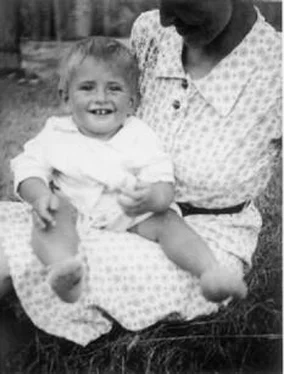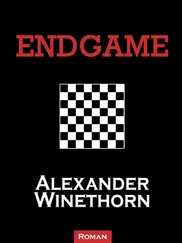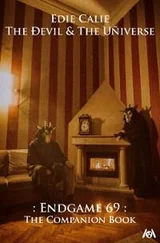
“You are truth. You are love. You are bliss. You are freedom.”
Bobby was reading The Rajneesh Bible , a work by the charismatic and controversial guru Bhagwan Shree Rajneesh. Like Bobby, Bhagwan had also had trouble with the United States Immigration Department, and was arrested and made to leave the country. Bobby identified with him in that respect and especially valued one of his dicta: “Never obey anyone’s command unless it is coming from within you.”
Bhagwan’s philosophy had attracted Bobby ever since he began exploring it during his eight years in Hungary. Although Bobby never practiced meditation, an essential part of Bhagwan’s belief system, he became deeply interested in the qualities of the ideal—or “realized”—self being described by Bhagwan. Bobby didn’t appear to much consider Bhagwan’s endorsement of such qualities as love, celebration, and humor. Rather, what seemed to appeal was the idea of the individual rising to a higher plateau. Fischer thought of himself as a warrior in all things, not just chess—and living in Iceland, free of incarceration, he made no exceptions. “I am always on the attack,” he proudly divulged while he was there—and he wasn’t talking about a board game. There was little time for humor or celebration in a time of war. He was poised for battle against the chess establishment, the Union Bank of Switzerland, the Jews, the United States, Japan, Icelanders in general, the media, processed foods, Coca-Cola, noise, pollution, nuclear energy, and circumcision.
Bobby thought of himself as being totally aware and equated himself with Bhagwan’s concept of the Nietzschean “Superman” who transcends the constraints of society. “I am a genius,” he said shortly after arriving back in Iceland, not pontifically but sincerely. “Not just a chess genius but a genius in other things as well.”

Bobby’s attempt to find some deeper, perhaps religious meaning to his life took a wide and twisted path. At first, as a child, there was Judaism, of which he never really felt a part; then Fundamentalism, until he became disillusioned with the leaders of the Worldwide Church of God. Anti-Semitism also became a quasi religion—or certainly a profound belief—for him, and one that he never really abandoned. At one point of his life he embraced atheism, although not for long. He was intrigued with the cult of Rajneesh himself, rather than the guru’s practices. Finally, near the end of his life, he began to explore Catholicism.
A contradiction in terms, an oxymoron? A Catholic Bobby Fischer?
Something was missing in the life of Bobby Fischer, a chasm that needed to be filled. Delving through books, he discovered the writings of Catholic theologians, and he became intrigued with the religion. Gardar Sverrisson, his closest friend in Reykjavik, was Catholic (one of the few: 95 percent of Icelanders are Lutheran), and Bobby began to ask him questions about the liturgy, the adoration of saints, the theological mysteries, and other aspects of the religion. Gardar answered what he could, but he was no theologian. Eventually, Bobby brought him a copy of Basic Catechism: Creed, Sacraments, Morality, Prayer , so that Gardar could be more informed when they had discussions.
It’s not certain whether Bobby was baptized in the Roman Catholic religion in the traditional manner, which entails the pouring of—or immersion in—water, the anointing of sacred chrism (special oil), and a solemn blessing by a priest performing the sacrament, but it’s unlikely. Einarsson and Skulasson both concluded that Bobby, despite his late-life deliberations on the topic, was not a strong believer in the Catholic Church and that he hadn’t converted to the faith. But there are three forms of baptism: by water (the usual way), by fire (as in martyrdom), and by spirit (in that the recipient desires to be baptized). If Bobby did wish to become Catholic, it’s possible that aspiration was sufficient for him to have been accepted into the Church, at least by less conservative clergy. According to Gardar Sverrisson, Bobby talked with him about the transformation of society by creating harmony with one another, and then professed that he thought “the only hope for the world is through Catholicism.”
Bobby’s attraction to Catholicism, a religion that is defined by its emphasis on charity, humility, and repentance for sins, seems hard to reconcile with his writings such as: “Unfortunately we’re not strong enough just to wipe out all the Jews at this time. So what I believe we should do is engage in vigilante random killing of Jews. What I want to do is to arouse people against the Jews to the point of violence! Because the Jews are criminal people. They deserve to have their heads cracked open.”
“I am not now that which I have been,” Byron wrote in Childe Harold’s Pilgrimage , and that could have been Bobby’s answer to his spiritual change near the end of his life. Or, as cynical as it may sound, his possible acceptance of Catholicism may have been merely a theological chess game, a tactic and long-term strategy that he calculated might lead to eternal salvation. Men often believe that they’ve converted as soon as they decide to do so, although they haven’t yet achieved—and often aren’t even aware that they must enter—a state of inner worship. Only Bobby Fischer knew what was in his heart.

A photograph of Bobby taken by Einar Einarsson in the summer of 2005, just a few months after he arrived in Iceland, clearly shows an encroaching illness. Fischer usually would never sit for a photograph, but when dining with Einarsson at 3 Frakkar (“Three Coats”), Bobby was greeted by an old chef whom he knew from 1972, who asked if he could pose with Bobby. Einarsson took a picture of the two men and then moved the camera slightly to the left and took a single shot of Bobby. The result was a revealing portrait of a man in pain: psychic and perhaps physical. David Surratt, a chess editor, observed: “The expressiveness of the eyes, my goodness, you can practically feel his sadness, and perhaps a sense of regret, too. Perhaps regret over what might have been, or what he lost over the latter half of his life.”
Bobby started to have urinary problems and thought it might simply be caused by an enlarged prostate gland, at first denying that anything might be seriously wrong with him. His lungs were also bothering him and he was having difficulty breathing. Since he had a lifelong distrust of doctors, he tolerated the discomfort until October 2007, when his pain and inability to urinate became excruciating. He went to a doctor and requested a cursory, nonintrusive examination, but it was explained that only a blood test would enable the doctor to evaluate his kidney function. Reluctantly, he acquiesced; the test showed that he suffered from elevated levels of serum creatinine with a value way above 1.4, the highest parameter in the normal range. The finding indicated that he had a blocked urinary tract. This abnormality could be checked, although possibly not cured, by taking certain drugs. But there were also problems with his kidneys, which were not functioning properly. On principle, harking back to his Worldwide Church of God teachings, Bobby refused to take any medicine, and the idea of being hooked up to a dialysis machine to cleanse his blood every few days for the rest of his life was out of the question. When the dialysis treatment was proposed he said it was absurd. He was warned that unless treated, he could experience total kidney failure, seizures, and even dementia. When he asked for more information about his prognosis, the doctor told him that unless dialysis treatment began immediately, he probably didn’t have more than three months to live. Despite these dire warnings, he still refused to be treated, and he even rejected taking pain medicine to ease his agony. It’s possible that Bobby was just giving up, letting go of his life, beginning a slow form of suicide. His friend Pal Benko believed that to be the case.
Читать дальше



![Антон Текшин - EndGame [СИ]](/books/394477/anton-tekshin-endgame-si-thumb.webp)









